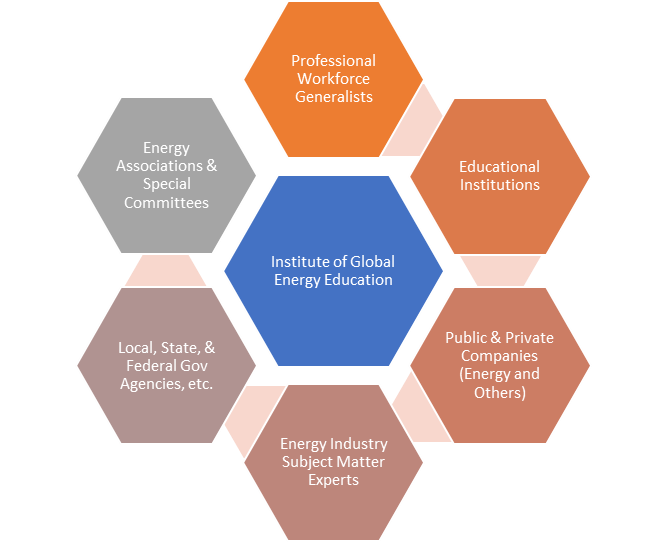Based on the input of our Stakeholders, we will support energy education programs that broaden the network of unbiased information and create a foundation that enables a better understanding of how energy works. We will bridge the knowledge gap between facts and perception of how traditional energy models may or may not need to change to enable people to have an accurate understanding of how the grid works. This will subsequently support policies and investments that will more effectively support related Climate Change investment initiatives.
Based on this educational paradigm, we believe that more people will be able to communicate more effectively to develop rational energy policies consistent with facts and to better face ongoing climate challenges.
The Institute is a 501(c)(3) non-profit corporation with a goal to be the premiere resource and supporting establishment for energy education in North America based on Stakeholder input. The Institute is closely aligned with key energy-focused Stakeholders to ensure collaboration and relevance to the professional community. We seek not to reinvent but to build on existing proven foundational programs and knowing where they exist. As such, our Stakeholders reside in six key groups as shown .
Institute of Global Energy Education Stakeholders

This will enable the Institute to maintain continuity in the quality and content of the educational programs it supports across North America. The Institute, by collaborating with the diverse Universities and Colleges, and others that implement or support Energy Education programs, can help identify and pass along best practices from one school to another while simultaneously ensuring that programs stay true to our Vision of being intellectually impartial, accurate, technology agnostic, unbiased, and non-ideological across all technologies. Every power generation technology has pluses and minuses; the Institute will ensure that these are identified accurately and fairly, so that decisions can be made transparently and with no hidden agendas.

